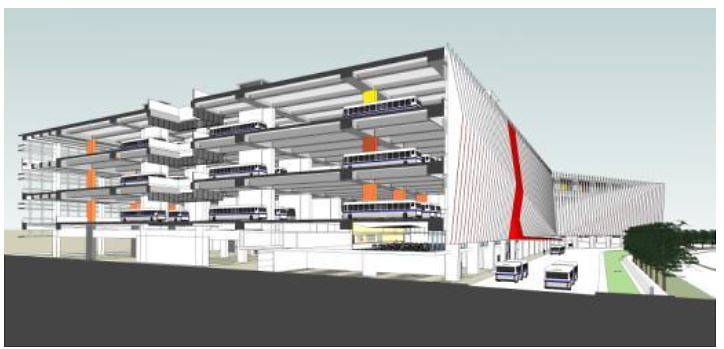SINGAPORE: The new four-in-one rail and bus depot in East Coast will save taxpayers S$2 billion in construction costs, Transport Minister Khaw Boon Wan said on Friday (Feb 23).
The East Coast Integrated Depot, which will combine three depots of the Thomson-East Coast Line (TEL), Downtown Line (DTL) and East-West Line (EWL) as well as a bus depot, is expected to be built at a cost of S$3.2 billion.
“If we were to build the four depots as separate depots, we would have to incur an additional $2 billion! So this 4-in-1 solution saves taxpayers a huge sum of money,” Mr Khaw wrote in a Facebook post.
He also noted that the design frees up 44 hectares of land – the size of two Changi Terminal 4s.
“A truly excellent example of maximising land use through creative thinking,” he said.
First announced in 2016, the East Coast Integrated Depot is expected to be ready by 2024. It is said to be the first in the world to combine three train depots and a bus depot within a single site.
The facility stacks three train depots above one another – the DTL depot will be located underground, followed by the TEL depot on ground level and the EWL depot on the level above. All three depots have been designed to operate independently of one another, the Land Transport Authority (LTA) said in a media release on Friday.

Cross-section of the three train depots. (Image: LTA)
“Careful planning has been done for them to share the same layout so that MRT lines with different number of train cars can be stacked on top of one another,” LTA said, adding that the integrated depot can house 220 trains.
The bus depot will be an independent three-storey structure next to the train depots. The workshops are located on the first level while parking bays for around 760 buses are planned on the second and third levels.

Cross-section of the bus depot. (Image: LTA)
By integrating the depots in a single site, the saved land space can be put to other uses and also allows sharing of facilities, LTA said.
“The same set of foundations and columns is shared among the three train depots, leading to structurally efficient and economical design. The co-location of the depots also enables cost savings through the centralisation and sharing of common facilities and systems,” it said.





